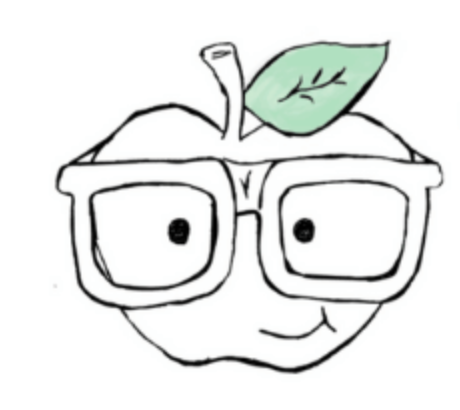
The Side Effects of Sleep Deprivation: Why Protecting Your Sleep Should Be a Priority
Despite its importance, we often underrate the benefits of sleep and underestimate the side effects of sleep deprivation. The old cliché still holds true: we spend about one-third of our lives asleep. Yet, when it comes to investing time and energy into improving sleep, most of us fall short.
But here’s the truth - your sleep is directly tied to your physical health, mental wellbeing, and even your social life. Research from the University of California, Berkeley, has shed light on the significant impact of poor sleep. These findings might just prompt you to rethink your habits and protect those valuable horizontal hours.
Why Sleep Matters More Than You Think
Sleep isn’t just downtime. It’s a biological necessity that helps regulate mood, restore energy, balance hormones, and repair tissues. When you compromise your sleep, you’re not just feeling tired- you’re disrupting important systems that keep you healthy.
From a Physiotherapy perspective, I’ve seen firsthand how chronic poor sleep can worsen musculoskeletal pain and increase recovery time. Beyond that, mounting evidence links poor sleep to heart disease, obesity, diabetes, and weakened immunity.
And now, we know it may also affect how socially connected - or isolated you feel.
The Social Side Effects of Sleep Deprivation
The Berkeley study, published in Nature Communications, found that sleep deprivation:
- Leads to social withdrawal and loneliness.
- Causes others to perceive you as lonelier than you actually are.
That means poor sleep doesn’t just affect how you feel - it may impact how others see you. And if you’re consistently sleep-deprived, that perception can reinforce feelings of isolation, creating a cycle that’s tough to break.
For people who already struggle with mental health or loneliness, this research may provide fresh insight into their symptoms. For the rest of us, it’s a powerful reminder that mental health is not just about stress or diet - sleep plays an equally critical role.
💡 Tip: If you’ve noticed yourself withdrawing socially or feeling unusually isolated, addressing your sleep hygiene could be something to look at.
The Side Effects of Sleep Deprivation Are Contagious
One of the most striking findings? Sleep deprivation doesn’t just affect you; it impacts the people around you.
Observers who interacted with sleep-deprived individuals reported feeling “significantly lonelier themselves.” This suggests that lack of sleep may have a contagious effect, influencing the emotional state of others in your social circle.
Think about it: poor sleep can knock you off balance, reduce empathy, and make communication harder. Over time, that doesn’t just erode your own resilience; it can ripple outward, affecting relationships, workplace culture, and even families.
Can We Generalize These Findings?
As a Physiotherapist, I value evidence-based practice, but I also believe it’s important to recognize study limitations.
In this research, participants went through two sessions:
- One after a normal night’s sleep.
- One after 24 hours of total sleep deprivation.
Now, most of us don’t pull all-nighters regularly. A more realistic sleep reduction (say, losing 1–2 hours per night) might show different effects. Still, even without extreme deprivation, consistent poor sleep adds up. What may start as “just a few late nights” can gradually undermine your health and well-being.
The takeaway? Use the study as a red flag. Even if the conditions don’t perfectly match real life, the message is clear: don’t dismiss the ripple effects of sleep loss.
How to Protect Yourself From the Side Effects of Sleep Deprivation
Improving sleep isn’t just about getting more hours; it’s about quality, consistency, and environment. Here are some evidence-based strategies:
- Prioritize sleep hygiene: Keep a consistent bedtime and wake-up time.
- Reduce blue light exposure: Screens before bed disrupt melatonin production. Consider blue-light filters or limiting screen time.
- Create a sleep-friendly environment: Dark, cool, and quiet rooms promote deeper sleep.
- Limit stimulants: Caffeine, alcohol, and late-night heavy meals can interfere with sleep cycles.
- Move your body: Regular physical activity can improve sleep quality—but avoid intense workouts too close to bedtime.
- Mind your stress: Relaxation techniques like deep breathing, stretching, or meditation before bed can prepare your body for rest.
Related: Are you aware of the impact of blue light on our sleep?
Conclusion: Sleep Is Not Optional
This study is a timely reminder that sleep isn’t a luxury - it’s a non-negotiable pillar of health. The side effects of sleep deprivation extend far beyond tiredness. They can impact mood, relationships, perception, recovery, and long-term health outcomes.
If you regularly pull all-nighters, work night shifts, or notice sleep slipping down your priority list, it may be time to reset. For everyone else, it’s worth reflecting: are you truly protecting your sleep, or just letting it slide?
Journal Reference
Ben Simon, E., & Walker, M. P. (2018). Sleep loss causes social withdrawal and loneliness. Nature Communications, 9(1). 10.1038/s41467-018-05377-0
